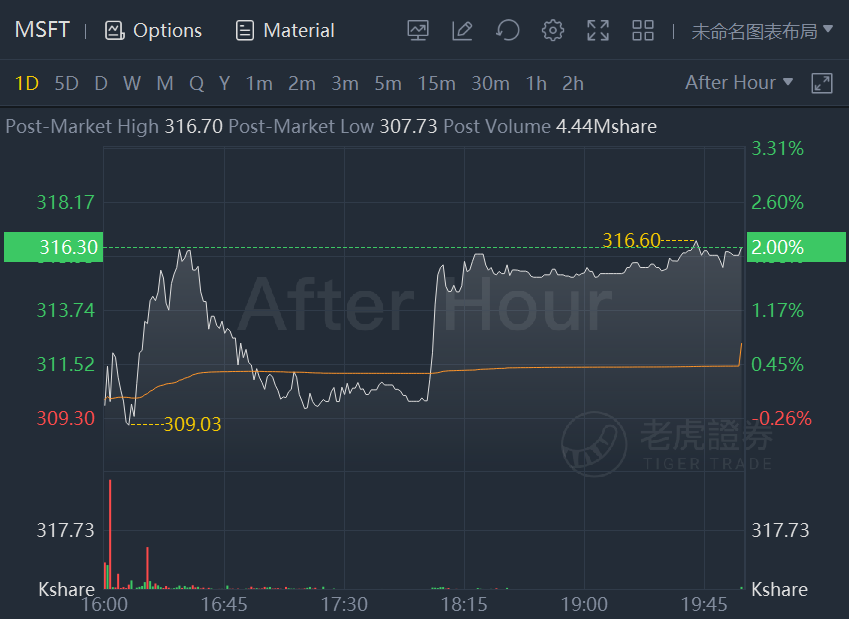Microsoft shares edged 2% to a new high in extended trading Tuesday after the software and hardware maker reported fiscal first-quarter earnings that exceeded analysts’ estimates.
Here’s how the company did:
- Earnings:$2.27 per share, adjusted, vs. $2.07 as expected by analysts, according to Refinitiv.
- Revenue:$45.32 billion, vs. $43.97 billion as expected by analysts, according to Refinitiv.
Overall, revenue rose 22% to $45.32 billion in the first quarter ended Sept. 30, beating expectations of about $43.97 billion.
Net income rose to $20.51 billion, or $2.71 per share. The company said its results included a $3.3 billion net income tax benefit.
On an adjusted basis it earned $2.27 per share, trumping analyst expectations of $2.07 per share.
Microsoft said revenue from its largest and fastest growing "Intelligent Cloud" segment surged 31% to $17 billion. Analysts had expected a figure of $16.58 billion, according to Refinitiv data.
Revenue growth for Azure, the company's flagship cloud-computing business, came in at 48% in constant currency to beat analysts' estimates of 47.5%, according to consensus data from Visible Alpha.
Azure's growth rate is the best direct measure of competition with rivals such as AWS and Google Cloud as Microsoft does not break out revenue from the cloud-computing unit.
Microsoft appeared to hold off Google Cloud's rising challenge. Google Cloud said on Tuesday its revenue surged by 45% to $4.99 billion, but failed to live up to estimates of $5.2 billion.
Revenue at the firm's other business units that house Windows software, Teams messaging service and LinkedIn professional social networking platform also beat analyst expectations.
The supply chain issues affecting much of the global tech industry had mixed consequences for Microsoft.
Amy Hood, executive vice president and chief financial officer of Microsoft, said that while the company did see some higher costs for building out data centers, it was able to mitigate those costs, with gross margins for its commercial cloud segment rising after discounting the impact of recent changes in accounting for data center gear.
Microsoft said sales of its Xbox gaming consoles and accessories were up 166% as it continues to see strong demand for new models after the pandemic forced millions to seek entertainment at home.
But Microsoft and its rivals have been unable to keep up with demand because of the global chip crunch.
Hood told Reuters the company expects Xbox demand to continue to exceed supply.
Microsoft's revenue from selling Windows to PC makers grew 10% year over year, beating the overall PC market, which only grew 3.9% over the same period because of supply constraints, according to data from IDC.
Hood said that the company was able to outperform in the PC market because of its strength in selling licenses for Windows destined for corporate customers, where it gets more revenue per license and has better market share.



